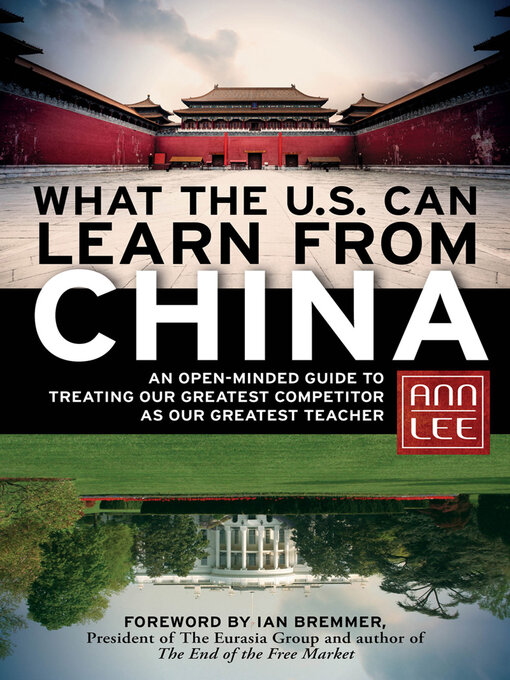The author examines what China can teach the U.S. in education, economic policy, foreign policy, strategic planning, and politics.
While America reeled from the 2008 financial crisis, a high unemployment rate, and a surge in government debt, China’s economy was the second largest in the world, and many predict it will surpass the United States’. President Obama called China’s rise “a Sputnik moment”—will America seize this moment or continue to treat China as its scapegoat?
Mainstream media and the U.S. government regularly target China as a threat. Rather than viewing China’s power, influence, and contributions to the global economy in a negative light, Ann Lee asks, what can America learn from its competition?
Why did China recover so quickly after the global economic meltdown? What accounts for China’s extraordinary growth, despite one of the highest corporate tax rates in the world? How does the Chinese political system avoid partisan rancor but achieve genuine public accountability? From education to governance to foreign aid, Lee details the policies and practices that have made China a global power and then isolates the ways the United States can use China’s enduring principles to foster much-needed change at home.
This is no whitewash. Lee is fully aware of China’s shortcomings, particularly in the area of human rights. She has relatives who suffered during the Cultural Revolution. But by overemphasizing our differences with China, the United States stands to miss a vital opportunity. Filled with sharp insights and thorough research, What the U.S. Can Learn from China is Lee’s rallying cry for a new approach at a time when learning from one another is the key to surviving and thriving.
“Ann Lee’s What the U.S. Can Learn from China is a rare achievement in today’s examinations of U.S.-China relations: it supplements an already sophisticated analysis with a deep cultural understanding that is richly valuable and laudably objective. Ann’s ability to ask the tough questions helps Americans to understand China better and China to see itself clearer.” —Nancy Yao Maasbach, executive director, Yale-China Association
“This book sparkles on literally every page with surprising insights and crucial information that everybody in America—and China—simply must become acquainted with or be reminded of. Whether it be about education, culture, politics and economics, or business, Ms. Lee has much, much more to teach both Americans and Chinese than any of us knew that we had yet to learn.” —Robert Hockett, Professor of Financial and International Economic Law, Cornell University

